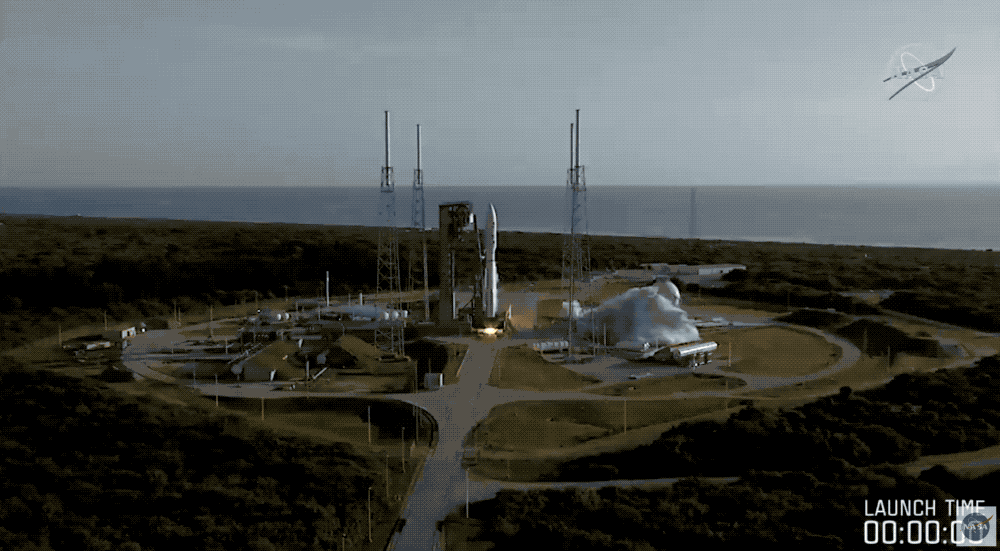NASA has launched one of its most crucial science missions to date, the Mars 2020 mission that carries its Perseverance robotic rover. This rover, a successor to the Curiosity robotic explorer, is equipped with sensors specifically designed to help it hopefully find evidence of ancient, microbiotic life on Mars.
Mars 2020 departed from Cape Canaveral in Florida at 7:50 AM EDT (4:50 PM PDT). Perseverance was loaded atop a United Launch Alliance (ULA) Atlas V rocket, which had a good liftoff and deployed its second stage, which put the spacecraft into a parking orbit as it readies to depart on its trip toward Mars, which will see it arrive in February 2021.
Once at Mars, the lander vehicle will take Perseverance down to the planet’s surface on February 18, 2021, to a target landing zone found in what’s known as Jezero Crater. This location on Mars was once a lake, long ago when the atmosphere on Mars was quite different than the dry, dusty and cold environment we know today. This has been chosen specifically because it’s a prime spot for finding any evidence of microbiological life that might exist, as it contains one of the best-preserved deposits of a river delta on Mars.
NASA scientists don’t expect to be able to confirm the existence of life on Mars using the instruments on Perseverance; however, they think they can find strong indications that the conditions and materials necessary for life once existed. But the ultimate proof could come from the ambitious Mars sample return mission being planned for 2026. This would involve NASA launching a return rocket to the red planet, which will carry a rocket that can take off from the Mars surface with samples collected by Perseverance on board. That would then meet up with a rover to be launched by the European Space Agency (ESA), which would then make the trip all the way back to Earth for scientists to study.
In addition to its contained, radioactive nuclear battery power source, environment sensors, cameras and a suite of other instruments to help pick up any preserved evidence of ancient life, Perseverance is equipped with microphones. This is the first time that microphones are making the trip to the surface of another world, and it means we could hear what it sounds like on the surface of another world, something we’ve never done before.
Perseverance also carries the Mars Ingenuity helicopter, a small drone designed for first-ever self-powered flight, which is also designed to warm itself to survive the cold Martian night. It is set to hopefully make up to five flights in 30 days, and could include color photos — the first ever taken from an aerial vantage point.
This is a great first step for this historic Mars 2020 mission, and now we’ll wait and watch for other significant milestones, including next in around two weeks when the spacecraft fires its engines for its departure from Earth’s orbit and begins the long trip to Mars.






























Comment